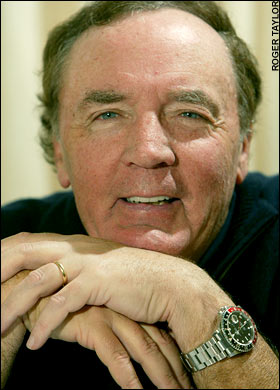Originally published in Interzone, Issue 206
 Why did you decide to write novels aimed at younger readers?
Why did you decide to write novels aimed at younger readers?
Well, I don’t think it’s a secret that most kids these days aren’t reading a whole lot, and I think we do a disservice to books and reading when we just throw up our hands about the situation. We readers all know that when we have the right book in our hands, there isn’t a movie, game console, online community, or sitcom in the world that would tear us away, right? I wanted to get a real, honest to gosh page-turner out there so some young people could get a taste of what a good book can do to you.
Why did you decide to use the two and three page chapters throughout?
I was writing a novel and I had it all sketched out – chapter-by-chapter – with just the crucial action and character details set down. I sat down to go back over it and flesh it out. But when I started reading it over, I said to myself, this doesn’t need any more flesh. i like this. And I made up my mind then and there to try to keep to the essentials of the story and skip the stuff that people tend to skim themselves when they read.
Do you think it also has particular value for drawing in younger readers?
In as much as young readers have a lot more entertainment choices available to them than we did a generation back, so I ted to think the more they can do to keep the attention of young readers, the better.
As a successful writer of both adult and children’s diction, do you approach the work differently in any respect?
I don’t approach children’s fiction differently at all from a story-telling or writing perspective. The only thing different is that I’ve put on my ‘parent goggles’. I have an eight yea old, you know, so I’m getting pretty comfortable wearing them. And that just entails keeping out some of the adult situations that you wouldn’t want your kid to read about.
Do you feel that being a parent has given you a better idea of what children want to read?
I guess I am reading a lot more children’s fiction, but I think the fundamentals are the same. Publishers may package the books differently, but kids and grownups look for many of the same things in books. Paramount among what they seem to crave – in my experience – are story, story and story.
When you started working on Maximum Ride: The Angel Experiment, had you already decided it was the first of a series?
Well, maybe by the second sentence anyhow. It was too much fun writing the thing to confine to a one-off.
Maximum Ride is currently ‘in Hollywood development’ – do you keep a distance from the film adaptations of your work?
Actually, it’s looking like Hollywood is more and more interested in having me involved in the film adaptations of my stories. And, as long as it doesn’t get in the way of my writing, I’m happy to help.
You’re increasingly well known for your work advocating literacy in the US. As both a parent ad a writer, how important is this to you?
Oh, about as important as anything other than the well-being of my immediate family. I’m planning to leave at least half my estate to reading, education and book-related causes. If there’s one thing I firmly believe, it’s that we human beings need to read more if we’re ever going to hope to make this a better world.
Last year you set up the James Patterson Page Turner Award, which this year will give $500,000 to projects encouraging reading. Is it to encourage people to start reading as children?
It’s for absolutely anybody, of any age, race or creed who is out there doing a good job of spreading the joy and excitement of books. I have always believed the best long-term way to get people to do anything in life is to show them that it’s fun to do. It only takes one decent book to turn a person into a lifelong reader but, if they are never introduced to one, they’ll never get the habit.
How long do you think Max and her ‘family’ will continue?
What kind of suspense would I be creating if I flat-out answered that question?
© Paul F Cockburn